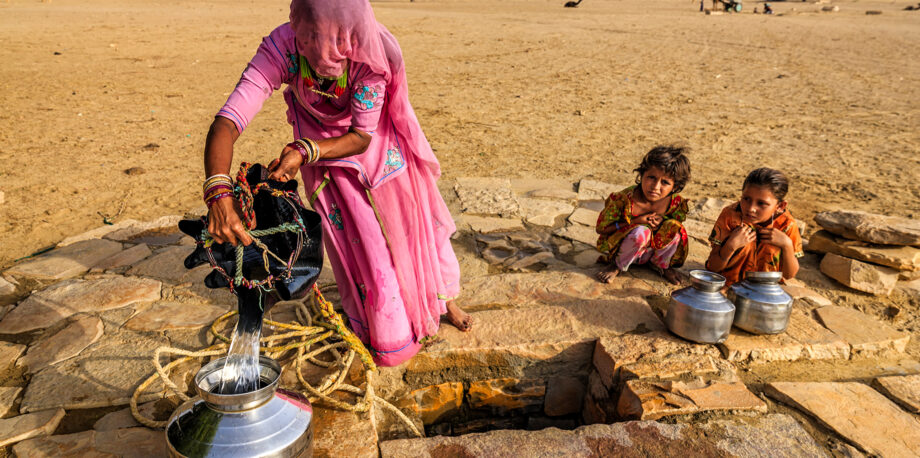August 8, 2019 — The climate crisis has hit hardest for low-income people in the Global South, widening the economic gap between rich and poor countries by about 25%, according to one study. Meanwhile, natural disasters such as floods and droughts push millions of people into poverty each year, even as climbing temperatures raise the likelihood of such disasters going forward.
When it comes to poverty, even cautious estimates confirm that warming of 1.5 °C to 2 °C by 2050 could be devastating, particularly in South Asia and sub-Saharan Africa, where climate catastrophe could trap 250–500 million people in poverty for years or even decades more.
Besides working to reduce greenhouse gas emissions, what can we do to lessen the toll of climate change on the world’s poorest people?
Make government assistance programs climate smart, suggests a new report from the International Institute for Environment and Development (IIED).
Drawing on a review of 65 national and global studies, plus a survey of low-income people in India, the report recommends that governments reform social protection programs such as welfare and social services, cash transfers and job guarantees to deal directly with the challenge of climate change.
Based on the previously published studies, IIED concluded that social protection programs in low-income countries tend to boost people’s resilience to climate-related risks such as drought. Existing social protection policies are typically most helpful when households need to handle risks that are relatively small and infrequent, or for aiding people as they attempt to bounce back better when climate shocks happen.
Where today’s programs fall short, however, is in transformative resilience: helping households “fundamentally change” so they’re less vulnerable to climate shocks in the first place.
To illustrate opportunities for reform, the researchers behind the report examined one of India’s top social protection programs, the Mahatma Gandhi National Rural Employment Guarantee Scheme (MGNREGS), which promises paid work to rural households. In theory, the program guarantees 100 days of work and wages each year to any rural resident who wants it, although full implementation of the policy is uneven. While providing jobs to low-income people who are temporarily unemployed, the program provides labor for infrastructure and other projects in rural areas.
To assess the impacts of MGNREGS, the researchers surveyed 651 low-income households in four Indian states: Andhra Pradesh, Jharkhand, Orissa and Sikkim. Of that group, 34% reported that the program helped them absorb climate-related shocks. Irrigation channels built by workers in the program, for example, helped drain farmable but waterlogged land after cyclones, while wages from MGNREGS employment helped families rebuild while keeping children enrolled in school. In the survey, 26% of MGNREGS beneficiaries reported even greater gains, saying that the program not only helped them handle individual shocks, but also enabled them to adapt to the changing climate.
Few of the people surveyed reported that MGNREGS enabled them to move beyond a state of vulnerability, however. To further improve people’s lives, the report recommends that policy-makers reform the program to account for climate change. This could entail paying wages that account for climate hazards, including the fact that households tend to need more income during droughts. It could also include training people in “climate-smart livelihoods” such as small-scale renewable energy efforts. Better coordination with government environmental programs could also boost sustainability while fighting poverty, the report suggests.
Today’s social protection policies already bring some measure of climate resilience to their beneficiaries. But it’s clear they can become even better.
“Such a creative shift is not only possible,” the report concludes, “it is a critical and obvious next step in a world whose people and communities, species and ecosystems are increasingly threatened by unprecedented climate challenges.”
Ensia shares solutions-focused stories free of charge through our online magazine and partner media. That means audiences around the world have ready access to stories that can — and do — help them shape a better future. If you value our work, please show your support today.
Yes, I'll support Ensia!
